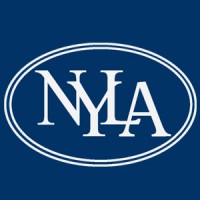
New York Library Association
The mission of the New York Library Association (NYLA) is to lead, educate, and advocate for the advancement of the New York library community.. Members of the state association include librarians of public, system, school, college and university and many special libraries, library trustees, and friends of libraries. From a membership of 43 in 1890, the association has grown to a vital organization of several thousand members, representing not only the libraries of New York State but also including many members, state and institutional, from all over the United States. The association was the first statewide organization of librarians in the United States. NYLA has always been devoted to the promotion of the library interests of the entire state. It has to its credit contributed to a notable system of modern libraries throughout the state.






